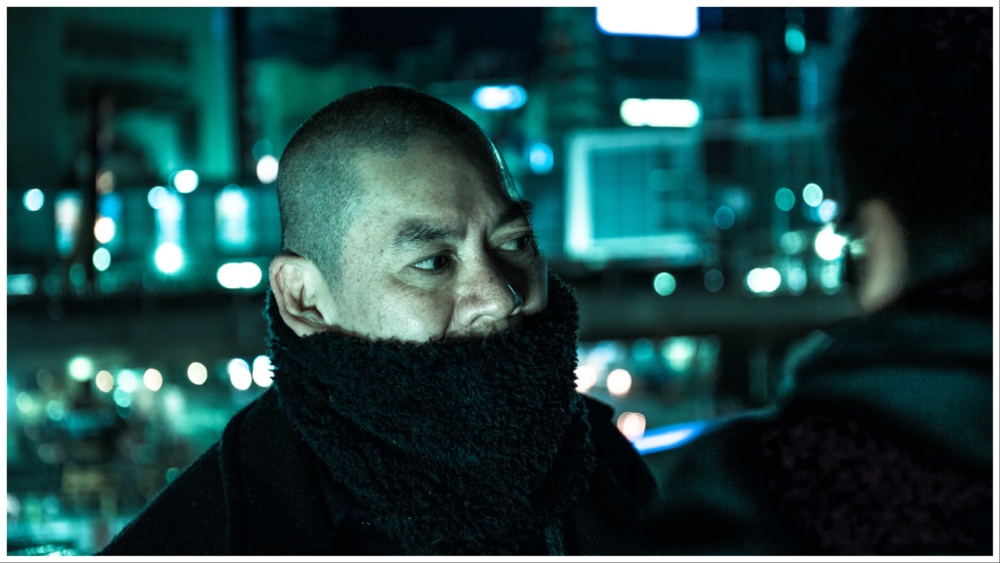Celebrated Malaysian-Taiwanese director Tsai Ming-liang sat down with Variety on the eve of receiving the Locarno Film Festival Career Award. The award is only the latest in a series of prizes from major European festivals the art-house maverick has received – from the 1994 Golden Lion from Venice for “Vive L’Amour” to the Silver Bear that “The River” won in Berlin in 1997.
So how does he feel to have received this latest sign of esteem from the film community?
“This is very special for me,” Tsai says. “I’m very happy, especially for my films which are not easy to see. Coming here and receiving a reward is a very big encouragement for me. Especially these festivals. They saw that I had embarked on a different way of creation. So here they gave me a space to show my short films.”
Since the 2010s, this “different way of creation” has seen Tsai increasingly focus on films such as the “Walker” series, which show at art spaces and exhibitions. “I always love freedom but when I make films, I can’t hope to enjoy total freedom, because of the market. All along the way, I’ve always wanted to have and enjoy freedom, that’s why I have more projects with museums because my concept of how I create is changing. Currently the movie theaters cannot accommodate my movies; at least not my more recent movies.”
His 2003 film “Goodbye, Dragon Inn,” a haunting portrait of a crumbling and closing movie theater, feels like a prescient statement. Is that how it feels now? That he’s saying goodbye to cinema? “The best place to see a feature film or even a short film is still in the movie theater but movie theaters have become too commercial. It’s always been like this. They’ve always been very commercial. Maybe, the concept of the movie theater should change, rather than the theaters close. We should find more possibilities.”
So, not just “Barbie” and “Oppenheimer”? Tsai laughs. “I haven’t seen them yet. But I’d probably choose ‘Oppenheimer.’ It’s closer to what I’d like to see, but I’m not in a hurry.”
No one has ever accused Tsai of being in a hurry. In fact, as leading examples of what has been termed “slow cinema,” his films are challenging and some critics argue punitive to audiences with their long takes – in 2013’s “Stray Dogs” shots last for tens of minutes – but in person he is warm, amiable and humorous. It’s a sly humor that can also be seen in his films.
“I don’t really do fictional features,” he admits. “It’s not drama, or script-orientated. But I put great emphasis on details and all the details are taken from real life. And real life is full of possibilities, including humor, absurdity and surrealism. It’s all from real life and so indeed there is humor there that is very important in my movies. It also helps the audience to continue to watch or to follow the movies.”
So how are audiences these days?
“Currently I think the cinema industry is declining. It may be a long decline going forward, so we don’t know about the audiences of the future or their tastes or habits, but if we’re talking about now, maybe it’s not the best audience I like. There’s something like a collective hypnotism happening. Now the audience are being collectively hypnotized like high school students. There’s no diversity like in the 70s, 80s and 90s. You had more diversity back then in the movies. I don’t think the movies that we are seeing and watching now are as good.”
His nostalgia brings us back to Locarno and more generally Europe. “Ever since I was a kid, until I went to college in Taiwan, Europe was for me as a movie-goer a new window. In a way, I feel like I followed the French New Wave into the cinema world. All of these films made by the New Wave directors are very personal films, unlike the more conventional films coming out of Hollywood, and each of these directors shot the movie like they are writing a book.
“So I was very attracted to this and very inspired by this. This is why my audience is in big European cities like Paris or Rome. These audiences have a bigger tolerance for diversity in films. As well as the U.S., it is also why there is such a big difference between Asian and European audiences. It’s the education of aesthetics.
“In Europe, especially in regard to images, you have aesthetic education coming from museums, whereas in Asia this education has only appeared quite recently. For example, in Taiwan it’s only in the past decade, we started this kind of museum culture. That’s why you have these two different kinds of audiences who have different tolerances in terms of film experiences.”
Tsai will receive his award in front of an audience in the outdoor Piazza Grande cinema on Sunday.
Read More About:
Source: Read Full Article


